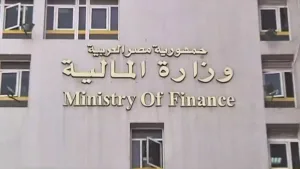In an overwhelming response to the business community’s push to develop a business-friendly tax system and cutting red tape, the Cabinet approved a new bill (the “Bill”) aiming to reactivate the Tax Dispute Resolution Committee (“TDRC”) and grant some incentives to taxpayers by setting forth certain limitations to the tax delay penalties.
It is anticipated that the Bill will be approved by Parliament before the end of 2019. How the TDRC works and the novel incentives introduced by the Bill are highlighted below.
Reactivating the TDRC
The TDRC has been initially formulated by Law No. 79 for the year 2016, which was then renewed for two additional years by virtue of Law No. 14 for the year 2018, ending the TDRC’s mandate by the end of 2018. The TDRC proved its efficiency in reducing the tax cases’ backlog before state courts, in addition to promoting room for amicable and fast settlement of tax disputes between taxpayers and the Egyptian Tax Authority (“ETA”). According to senior government officials, the TDRC has succeeded in resolving c.7000 on-going tax litigations and added around EGP 15 billion to the state’s treasury.
Pursuant to the Bill, the TDRC will accept settlement applications after ratifying the Bill by Parliament, with an initial deadline set by the end of June 2020.
The Settlement Process
The TDRC is headed by an independent tax expert and is comprised of judges and ETA officials. The TDRC is entitled to resolve disputes that are heard before different levels of courts, tax appeal committees and/or conciliation and petition committees. The taxpayer should include in the settlement application a full narration of facts and present the relevant supporting documentation. If the TDRC finds the settlement application acceptable in form, it notifies the court, or the appeal committee as the case may be, and this suspends the ongoing dispute proceedings automatically for three months.
Once the TDRC issues its resolution, the taxpayer is conferred the option either to agree in writing, which turns the resolution to be binding upon the taxpayer and the ETA, or to reject the TDRC’s decision and continue with the initial unsettled dispute proceedings. The final settlement decision requires ratification by the Minister of Finance. The last step is the TDRC’s notification to the concerned court or appeal committee to terminate the proceedings.
New Limitations on Tax Delay Penalties
The application of delay penalties has been subject to contentious discussion since the issuance of the Egyptian Tax Law No. 91 of 2005 (the “Tax Law”), as in most cases the delay penalties exceeded the underlying tax, which has been regarded as a great burden on taxpayers, especially that tax litigations may last for several years before local courts and appeal committees. The Bill introduces a new mechanism for calculating the delay penalties under the Tax Law through two new additional clauses to be added to the long-debated Article 110 of the Tax Law in respect of delay penalties.
The Bill proposes a cap of three years on calculating delay penalties in case the ETA delayed the technical tax inspection for a period exceeding three years from submission of tax returns. This could be an incentive for the ETA not to stall its inspection of tax returns, whereby the ETA could amend the payable tax within three years from the tax returns being filed, with a full entitlement to delay penalties with no cap until full payment.
As an additional incentive, this foregoing rule is to be applied retroactively on five tax periods preceding the Bill, provided that the taxpayer is not allowed to claim a refund of any additional payments on account of delay penalties that had been made beyond the three-year time limit.
The Bill further introduces another incentive for the amicable settlement of disputes by settling them internally and relatively quickly between the taxpayer and the ETA apart from appeal committees and state courts. The amendment stipulates that if the taxpayer reached an agreement with the ETA before leveraging the dispute to the appeal committee and getting a decision, and then successfully settled the underlying tax, a 30% discount off the delay penalties will be granted.
Market Reaction
Speaking on the Bill, the Cabinet declared in a statement that “approving the Bill is due to the government’s diligence to accelerate and ease the methods of resolving tax and customs disputes”. Minister of Finance, Dr. Mohamed Maait, declared that “the Bill comes in conformity with the government’s plan and reform program to improve the business climate and to attract more FDI”.



